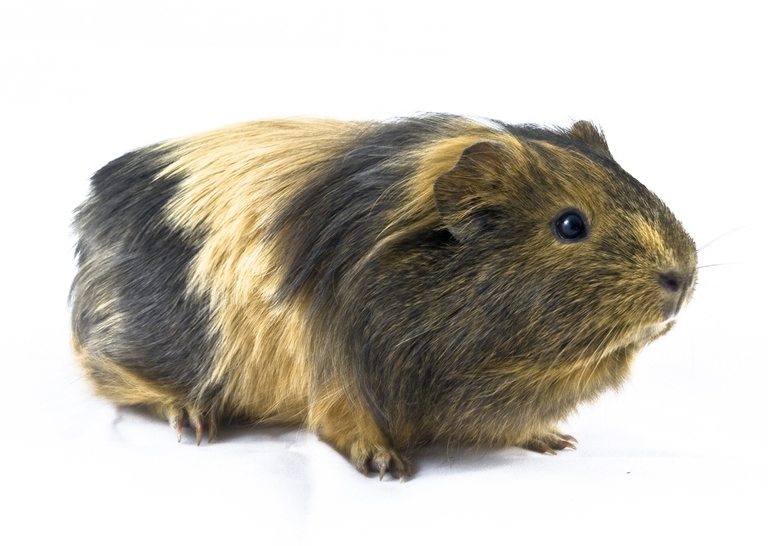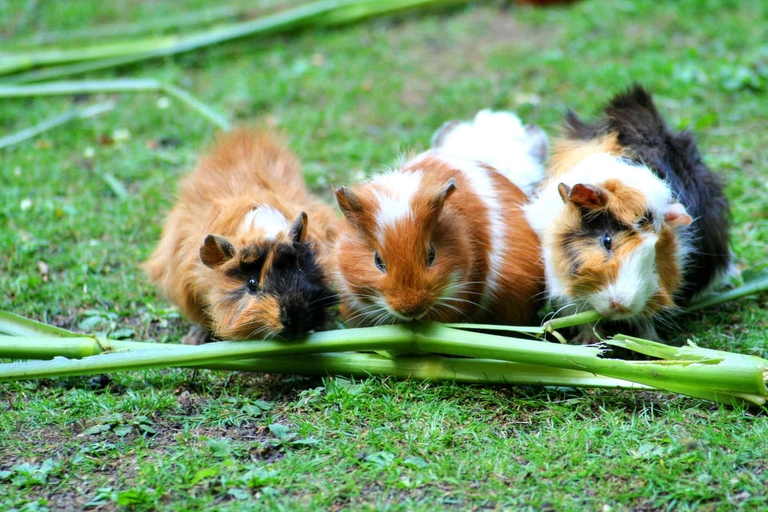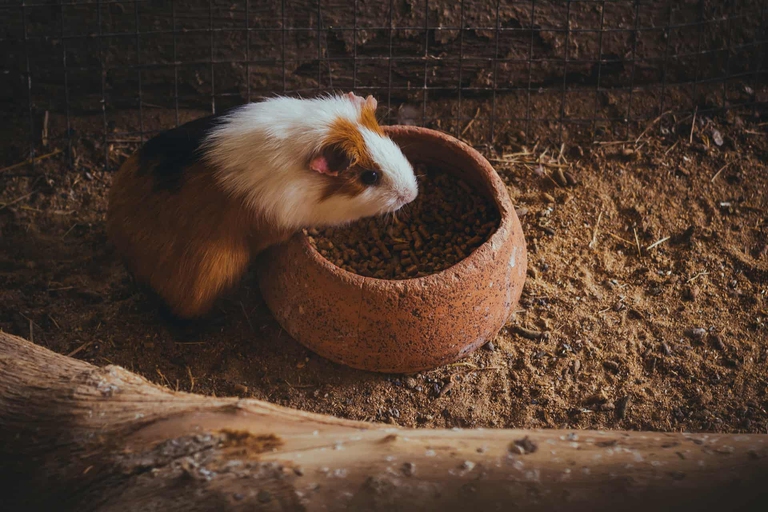https://www.lifegate.it/porcellino-d-india
- |
- Let's get to know the guinea pig better
- An important commitment to take into consideration
- Several tips for a happy life
Guinea pigs are adorable creatures which have won the hearts of many people as pets.However, before you decide to bring a guinea pig home, it is important to understand the ethics behind keeping them and ensure you can provide an adequate environment and care.In this article, we will explore the ethics of keeping guinea pigs as pets and provide helpful tips on how to care for them responsibly.
Who is the guinea pig?
Let's start from the beginning, the guinea pig (Cavia porcellus), also known as the domestic guinea pig, is a small rodent native to South America.It has a stocky body, with short legs and rounded ears.It is covered in thick fur and comes in a variety of colors and patterns, including brown, black, white, gray, golden, and even long-haired varieties.It usually reaches a length of about 20-30 centimeters and a weight of 700-1,200 grams.They are social animals and prefer to live in groups or pairs, in fact they are known to emit a series of vocalizations such as whistles, calls and buzzes to communicate with each other.The guinea pig has a lifespan usually between 5 and 7 years, but it can even reach 8-10 years with appropriate care.

Be aware of the commitment
Before getting a guinea pig, you need to reflect on the long-term commitment it requires.Consider whether you have time for daily care, interaction and cage cleaning.The economic side is not to be underestimated and must be be ready and able to cover expenses veterinary supplies, food and accessories for your pet.Taking care of a guinea pig is a commitment that, given its longevity, can last several years.
Adopting is better than buying
The advice is always to prefer adoption to purchase, for several reasons:by purchasing from breeders or pet shops the risk is that of contributing to the overcrowding of pets.In fact, many pigs end up abandoned and rescued from shelters.One reason is that people don't realize how much commitment they need.Additionally, piggies purchased from stores may come from breeding lines unethical that favor profit over health.It is not uncommon that these animals might have genetic problems or hereditary diseases that arise later.On the contrary, adopting a little pig from a shelter or an association, first of all we contribute with financial support to these organizations, after which the animal is given a second chance after having lived through difficult experiences and finally they are animals subjected to various veterinary checks.

Where to keep your guinea pig
A fundamental element for the well-being of guinea pigs is adequate space.The guinea pig needs a spacious cage, essential to allow them to express their natural behaviors.A cage of at least 70x50 centimeters will provide enough space for them to move, jump and play. The cage should be placed in a quiet area of the house, away from drafts and extreme temperatures.The floor of the cage must be rigid and uniform, the grids could in fact cause injuries to the paws (a mat or a plastic base can solve the problem).Inside the cage there must be hiding places where he can take shelter and feel safe.In addition to the cage, it is important to dedicate extra space for exploration, a larger enclosure outside cage it is a safe area where they can move freely.Toys suitable for guinea pigs are always recommended to stimulate curiosity and prevent boredom.Finally, if possible it is better to always spend time outdoors in safe environments sheltered from the sun and possible predators.

Guinea pigs are social animals
Guinea pigs they are extremely social animals and prefer to live in groups.If possible, the option better is to adopt a pair of guinea pigs so they can interact with each other.This will satisfy their need for companionship and reduce the risk of loneliness.However, it must be kept in mind that it is necessary to provide enough space and resources for each individual, such as separate food bowls and separate rest areas.In this regard, in Switzerland, a law for the protection of animal welfare, made it illegal to have a single guinea pig, because loneliness is considered a suffering comparable to torture.
The guinea pig diet
Proper nutrition is essential for the health of guinea pigs.The basis of their diet should be timothy grass hay high quality, which provides the right necessary fiber and maintains the health of the digestive system.Supplement your diet with fresh vegetables like carrots, peppers and lettuce leaves adds variety and essential nutrients to their diet.You should avoid feeding them harmful foods such as chocolate, onions and avocados.
Veterinary care
Regular veterinary visits are critical to the long-term well-being of guinea pigs.It is advisable to rely on a veterinarian specializing in exotic animals.You need to plan check-ups every 6-12 months while from home you can monitor the state of your teeth (continuously growing) and weight. Prevention is always better than cure, so observing and identifying any signs of discomfort in advance is an excellent weapon for helping your pig live a healthy life.
Caring for guinea pigs ethically requires constant commitment.By also following our advice you can allow your guinea pigs to live a healthy and happy life.
